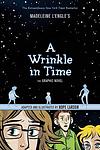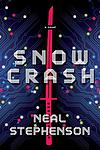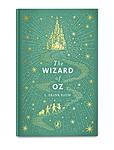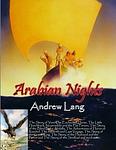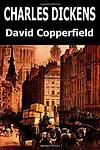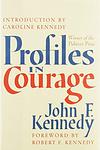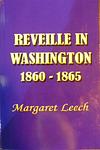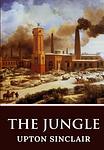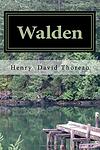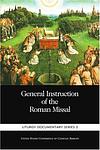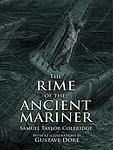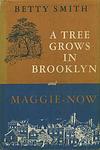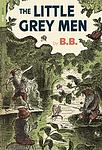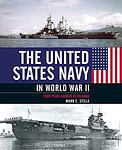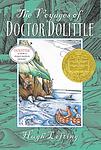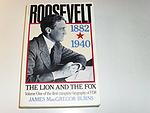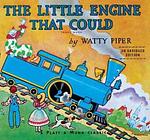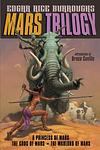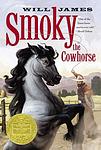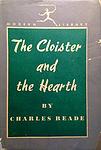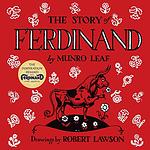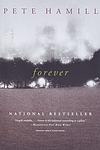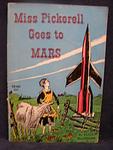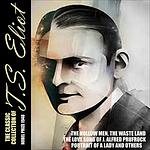Recommended Books
This is one of the 273 lists we use to generate our main The Greatest Books list.
-
The Autobiography of Malcolm X by Alex Haley
This book is an autobiography narrating the life of a renowned African-American activist. It delves into his transformation from a young man involved in criminal activities to becoming one of the most influential voices in the fight against racial inequality in America. The book provides a deep insight into his philosophies, his time in prison, conversion to Islam, his role in the Nation of Islam, his pilgrimage to Mecca, and his eventual split from the Nation. It also addresses his assassination, making it a powerful account of resilience, redemption, and personal growth.
-
R. E. Lee by Douglas Southall Freeman
"R. E. Lee" is a comprehensive biography that provides a detailed account of the life of the famed Confederate General Robert E. Lee. The book dives deep into his personal life, his military strategies, and his role in the American Civil War, offering a balanced and nuanced portrayal of Lee. It also explores his relationships, his character, and his post-war life, giving readers a well-rounded understanding of this significant figure in American history.
-
Twenty Thousand Leagues Under the Sea by Jules Verne
This classic science fiction novel follows the adventures of Professor Aronnax, his servant Conseil, and harpooner Ned Land as they are captured by the enigmatic Captain Nemo aboard the Nautilus, a technologically advanced submarine. As they journey 20,000 leagues under the sea, they encounter a variety of sea creatures and underwater phenomena. The narrative explores themes of exploration, scientific discovery, and man's relationship with nature.
-
The Great Gatsby by F. Scott Fitzgerald
Set in the summer of 1922, the novel follows the life of a young and mysterious millionaire, his extravagant lifestyle in Long Island, and his obsessive love for a beautiful former debutante. As the story unfolds, the millionaire's dark secrets and the corrupt reality of the American dream during the Jazz Age are revealed. The narrative is a critique of the hedonistic excess and moral decay of the era, ultimately leading to tragic consequences.
-
A Wrinkle In Time by Madeleine L'Engle
The novel follows the story of a young girl named Meg Murry, her younger brother Charles Wallace, and their friend Calvin O'Keefe as they embark on a cosmic journey to rescue Meg and Charles Wallace's father. The father, a scientist, has been missing since he discovered a new planet using the concept of Tesseract, which is a wrinkle in time. Guided by three mysterious celestial beings, the children travel across different dimensions, face evil forces, and learn about the power of love and self-sacrifice.
-
Snow Crash by Neal Stephenson
In a future America where the federal government has largely collapsed and been replaced by corporate entities, a computer hacker and pizza delivery driver becomes embroiled in a plot involving a dangerous new drug and a computer virus called "Snow Crash". He is joined by a teenage skateboard courier and a host of other characters in a high-stakes race to uncover the truth behind the virus and its origins in ancient Sumerian culture. The narrative explores themes of linguistics, philosophy, computer science, religion, and cryptography.
-
A Study of History by Arnold J. Toynbee
"A Study of History" is an extensive 12-volume universal history, exploring the development and decay of world civilizations throughout the ages. The author proposes that civilizations rise and fall based on their responses to challenges, both physical and social. The book also puts forth the idea that religions play a crucial role in the rise of civilizations and that the failure of a civilization's creative power can lead to its decline. The work is renowned for its scholarly depth and its controversial theories about the cyclical nature of history.
-
Let Us Now Praise Famous Men by James Agee
This book is an in-depth examination of the lives of three tenant families in the South during the Great Depression. The author combines detailed descriptions, journalistic reporting, and poetic prose to capture the harsh realities of poverty, racial discrimination, and the struggle for survival. The book also includes evocative photographs that further illustrate the living conditions and daily lives of the families. The work is a profound exploration of the human condition, offering a raw and unflinching look at the effects of economic and social injustice.
-
Mere Christianity by C. S. Lewis
"Mere Christianity" is a theological book that explores the common ground upon which all of those of Christian faith stand. It provides an intellectual defense of Christianity that centers on the Law of Nature, arguing that God is behind this law. The book also explores Christian values, the cardinal virtues, and the theological virtues, ultimately arguing for the reasonableness of Christianity. The final section of the book discusses the doctrine of the Trinity and the process of becoming a Christian.
-
The Wonderful Wizard of Oz by L. Frank Baum
A young girl from Kansas is swept away by a tornado to a fantastical land called Oz. To return home, she must find the mysterious Wizard in the Emerald City, and on her journey, she befriends a Scarecrow in need of a brain, a Tin Woodman longing for a heart, and a Cowardly Lion seeking courage. They all hope the Wizard can grant their wishes, but they must first overcome the Wicked Witch of the West who poses a great danger to them.
-
One Thousand and One Nights by Unknown
This is a collection of Middle Eastern folk tales compiled during the Islamic Golden Age. The stories are told by a young woman, who must weave a new tale each night for her husband, a king, to delay her execution. The tales are filled with magic, adventure, love, and betrayal, and include well-known stories such as "Aladdin's Wonderful Lamp", "Ali Baba and the Forty Thieves", and "The Seven Voyages of Sinbad the Sailor".
-
David Copperfield by Charles Dickens
This novel follows the life of its titular protagonist from his childhood to maturity. Born to a young widow, David endures a difficult childhood when his mother remarries a harsh and abusive man. After his mother's death, he is sent to a boarding school before being forced into child labor. As he grows, David experiences hardship, love, and loss, all the while meeting a colorful array of characters. The novel is a journey of self-discovery and personal growth, showcasing the harsh realities of 19th-century England.
-
Fathers and Sons by Ivan Turgenev
This classic novel explores the generational divide and ideological clash in 19th century Russia. The story focuses on the relationship between a liberal father and his nihilistic son, who challenges the traditional values and beliefs of his elders. As they navigate their personal differences, the novel delves into broader themes of progress, love, and societal change, offering a poignant commentary on the tension between old and new ideas in a rapidly changing world.
-
A Separate Peace by John Knowles
Set in a New England boarding school during World War II, this novel explores the tumultuous friendship between two boys, a charismatic and daring athlete and his introverted, intellectual roommate. The story delves into themes of envy, identity, and the loss of innocence, culminating in a tragic accident that forever changes their lives. The backdrop of the war adds a layer of tension and urgency, reflecting the inner turmoil of the protagonists.
-
Profiles in Courage by John F. Kennedy
This book highlights the stories of eight U.S. Senators who displayed immense courage and integrity in the face of pressure from their parties and constituents. The author examines their acts of bravery and principle, often leading to severe consequences in their personal and political lives. The book aims to inspire readers with historical examples of political courage, emphasizing the importance of individual action for the collective good.
-
The Grapes of Wrath by John Steinbeck
The book follows the Joad family, Oklahoma farmers displaced from their land during the Great Depression. The family, alongside thousands of other "Okies," travel to California in search of work and a better life. Throughout their journey, they face numerous hardships and injustices, yet maintain their humanity through unity and shared sacrifice. The narrative explores themes of man's inhumanity to man, the dignity of wrath, and the power of family and friendship, offering a stark and moving portrayal of the harsh realities of American migrant laborers during the 1930s.
-
Moby Dick by Herman Melville
The novel is a detailed narrative of a vengeful sea captain's obsessive quest to hunt down a giant white sperm whale that bit off his leg. The captain's relentless pursuit, despite the warnings and concerns of his crew, leads them on a dangerous journey across the seas. The story is a complex exploration of good and evil, obsession, and the nature of reality, filled with rich descriptions of whaling and the sea.
-
On the Origin of Species by Charles Darwin
This groundbreaking work presents the theory of evolution, asserting that species evolve over generations through a process of natural selection. The book provides a comprehensive explanation of how the diversity of life on Earth developed over millions of years from a common ancestry. It includes detailed observations and arguments to support the idea that species evolve by adapting to their environments, challenging the prevailing belief of the time that species were unchanging parts of a designed hierarchy.
-
The Republic by Plato
"The Republic" is a philosophical text that explores the concepts of justice, order, and character within the context of a just city-state and a just individual. It presents the idea of a utopian society ruled by philosopher-kings, who are the most wise and just. The dialogue also delves into theories of education, the nature of reality, and the role of the philosopher in society. It is a fundamental work in Western philosophy and political theory.
-
Roughing It by Mark Twain
This book is a semi-autobiographical travelogue that chronicles the author's journey across the American West to Nevada. It covers his experiences as a miner, newspaper reporter, and lecturer, and includes humorous and insightful observations about the people, places, and culture he encounters. The narrative also provides vivid descriptions of the natural landscape, as well as commentary on the social and political issues of the time.
-
Nineteen Eighty Four by George Orwell
Set in a dystopian future, the novel presents a society under the total control of a totalitarian regime, led by the omnipresent Big Brother. The protagonist, a low-ranking member of 'the Party', begins to question the regime and falls in love with a woman, an act of rebellion in a world where independent thought, dissent, and love are prohibited. The novel explores themes of surveillance, censorship, and the manipulation of truth.
-
My Name Is Aram by William Saroyan
"My Name Is Aram" is a collection of short stories narrated by a young Armenian boy living in Fresno, California, in the early 20th century. The stories depict the boy's experiences and interactions with his eccentric and often comical relatives and neighbors. The tales are filled with humor, warmth, and wisdom, providing a charming and insightful look into the lives of Armenian immigrants in America during this time period.
-
Relativity by Albert Einstein
This book is a comprehensive introduction to the theory of relativity written by the physicist who developed the theory. It covers both the special and general theories of relativity and provides an accessible explanation of the physics involved, including the nature of light, time, and gravity. The book also discusses the philosophical implications of relativity and its impact on our understanding of reality. Written for a general audience, it aims to make complex scientific concepts understandable to non-experts.
-
The Sound and the Fury by William Faulkner
The novel is a complex exploration of the tragic Compson family from the American South. Told from four distinct perspectives, the story unfolds through stream of consciousness narratives, each revealing their own understanding of the family's decline. The characters grapple with post-Civil War societal changes, personal loss, and their own mental instability. The narrative is marked by themes of time, innocence, and the burdens of the past.
-
The Adventures of Oliver Twist by Charles Dickens
This classic novel follows the life of a young orphan named Oliver Twist, who endures a miserable existence in a workhouse and then is placed with an undertaker. He escapes and travels to London where he meets the Artful Dodger, a member of a gang of juvenile pickpockets led by the elderly criminal, Fagin. Despite numerous adversities, Oliver remains pure at heart and is eventually saved from a life of crime, revealing his true identity and claiming his rightful inheritance.
-
The Adventures of Huckleberry Finn by Mark Twain
The novel follows the journey of a young boy named Huckleberry Finn and a runaway slave named Jim as they travel down the Mississippi River on a raft. Set in the American South before the Civil War, the story explores themes of friendship, freedom, and the hypocrisy of society. Through various adventures and encounters with a host of colorful characters, Huck grapples with his personal values, often clashing with the societal norms of the time.
-
Reveille in Washington by Margaret Leech
"Reveille in Washington" is a vivid portrayal of Washington D.C. during the American Civil War. The book offers a detailed account of the city's transformation from a sleepy Southern town to a bustling hub of war activity, filled with soldiers, spies, bureaucrats, and freed slaves. The narrative also explores the social, political, and military life of the city during this tumultuous period, providing a unique perspective on the war and its impact on the nation's capital.
-
Lost Illusions by Honoré de Balzac
"Lost Illusions" is a sweeping narrative that focuses on the life of a young, ambitious poet from the provinces who moves to Paris in hopes of making a name for himself. Over time, he becomes disillusioned with the corruption and moral decay of the city's literary and high society circles. The protagonist's journey is marked by his struggle to maintain his integrity and idealism in a world dominated by materialism and selfish interests. The novel is a critical commentary on the destructive power of unchecked ambition and the pitfalls of vanity.
-
Leaves of Grass by Walt Whitman
"Leaves of Grass" is a collection of poetry that celebrates the human form and condition, while also exploring themes of democracy, nature, love, and friendship. The book, known for its departure from traditional poetic form, features a free verse style and the use of everyday language. The poet presents himself as both an individual and a universal figure, representing the collective American experience and identity. The collection is also notable for its controversial content at the time of its publication, including candid depictions of sexuality.
-
The Jungle by Upton Sinclair
This novel exposes the harsh conditions and exploited lives of immigrants in the United States in Chicago and similar industrialized cities. The protagonist, a young Lithuanian immigrant, works in the meatpacking industry and experiences the extreme poverty, poor working conditions, and lack of social services. The narrative explores the corruption of the American meatpacking industry in the early 20th century and the hardships faced by the working class, leading to significant public outcry that contributed to the passage of the Pure Food and Drug Act.
-
The Moviegoer by Walker Percy
The protagonist, a young stockbroker in New Orleans, is alienated, detached, and finds more reality in movies and books than in his everyday life. He searches for meaning in life, often through his relationships with his aunt and his cousin, while also dealing with existential dread and the impending reality of turning 30. This exploration of alienation and search for identity in the modern world won the National Book Award for Fiction.
-
Walden by Henry David Thoreau
This work is a reflection upon simple living in natural surroundings, inspired by the author's two-year experience of living in a cabin near a woodland pond. Filled with philosophical insights, observations on nature, and declarations of independence from societal expectations, the book is a critique of the complexities of modern civilization and a call to appreciate the beauty and simplicity of the natural world. It explores themes such as self-reliance, solitude, and the individual's relationship with nature.
-
Civil Disobedience by Henry David Thoreau
The book is a seminal work on the philosophy of non-violent resistance, advocating for individual freedom and the refusal to obey unjust laws. The author argues that individuals have a duty to prioritize their conscience over the dictates of laws and that governments are inherently prone to corruption and should not command absolute allegiance from their citizens. The book has greatly influenced many nonviolent resistance movements around the world, including those led by Gandhi and Martin Luther King Jr.
-
War of the Worlds by H. G. Wells
This classic science fiction novel tells the story of a Martian invasion of Earth, as experienced by an unnamed protagonist and his brother. The Martians, who are technologically far superior to humans, cause widespread devastation with their heat-ray weapons and towering tripods. Despite humanity's best efforts to resist, they seem unstoppable. The novel is a commentary on British imperialism and explores themes of human survival and evolution.
-
Crime and Punishment by Fyodor Dostoevsky
A young, impoverished former student in Saint Petersburg, Russia, formulates a plan to kill an unscrupulous pawnbroker to redistribute her wealth among the needy. However, after carrying out the act, he is consumed by guilt and paranoia, leading to a psychological battle within himself. As he grapples with his actions, he also navigates complex relationships with a variety of characters, including a virtuous prostitute, his sister, and a relentless detective. The narrative explores themes of morality, redemption, and the psychological impacts of crime.
-
The Bible by Unknown
The Bible is the central religious text of Christianity, comprising the Old and New Testaments. It features a diverse collection of writings including historical narratives, poetry, prophecies, and teachings. These texts chronicle the relationship between God and humanity, detail the life, death, and resurrection of Jesus Christ, and follow the early Christian church. Considered divinely inspired by believers, it serves as a foundational guide for faith and practice, influencing countless aspects of culture and society worldwide.
-
A Farewell to Arms by Ernest Hemingway
Set during World War I, the novel follows an American ambulance driver in the Italian army and his love affair with a British nurse. The story is a first-person account of the protagonist's experiences in war and his struggle to survive amidst chaos and destruction. The narrative explores themes of love, war, and the fragility of life, culminating in a tragic ending that underscores the futile nature of war and the inevitable suffering it brings.
-
Arrowsmith by Sinclair Lewis
The novel follows the life of a bright and dedicated young man, Martin Arrowsmith, who dreams of making significant contributions to medical science. He faces a constant struggle between his ambition and the demands of his professional and personal life. His journey takes him from a small Midwestern town to the prestigious universities of the East Coast, and eventually to a deadly outbreak in the Caribbean. Throughout his journey, he grapples with the corruption, greed, and mediocrity that he finds pervading the medical field, all while trying to remain true to his scientific ideals.
-
To Kill a Mockingbird by Harper Lee
Set in the racially charged South during the Depression, the novel follows a young girl and her older brother as they navigate their small town's societal norms and prejudices. Their father, a lawyer, is appointed to defend a black man falsely accused of raping a white woman, forcing the children to confront the harsh realities of racism and injustice. The story explores themes of morality, innocence, and the loss of innocence through the eyes of the young protagonists.
-
The Catcher in the Rye by J. D. Salinger
The novel follows the story of a teenager named Holden Caulfield, who has just been expelled from his prep school. The narrative unfolds over the course of three days, during which Holden experiences various forms of alienation and his mental state continues to unravel. He criticizes the adult world as "phony" and struggles with his own transition into adulthood. The book is a profound exploration of teenage rebellion, alienation, and the loss of innocence.
-
The Rime of the Ancient Mariner by Samuel Taylor Coleridge
"The Rime of the Ancient Mariner" is a classic English poem that tells the story of a mariner who kills an albatross, bringing bad luck and hardship on himself and his ship's crew. The mariner's journey becomes a spiritual quest as he is forced to confront the consequences of his actions and the nature of redemption. The poem is known for its vivid and imaginative language, including the famous line, "Water, water, everywhere, Nor any drop to drink."
-
Franz Kafka: The Complete Stories by Franz Kafka
This collection of stories offers a comprehensive look at the work of a renowned author, known for his surreal and often unsettling depictions of modern life. The stories explore themes of existential anxiety, guilt, and absurdity, often through narratives in which ordinary people face extraordinary, inexplicable circumstances. The collection showcases the author's unique style and his profound influence on 20th-century literature.
-
A Tree Grows in Brooklyn by Betty Smith
This classic novel follows the life of Francie Nolan, a young girl growing up in the slums of early 20th century Brooklyn. The narrative explores her experiences with poverty, her pursuit of education, and her dreams of a better life. The tree in the title serves as a symbol of her resilience and hope, growing and thriving despite the harsh conditions around it, much like Francie herself.
-
Studs Lonigan by James T. Farrell
"Studs Lonigan" is a trilogy that follows the life of an Irish-American man growing up in the South Side of Chicago. His life is marked by aimlessness and self-destruction, as he navigates through adolescence into adulthood against the backdrop of the Great Depression. The protagonist's struggle with his own ambitions, societal pressures, and personal weaknesses provides a stark examination of the human condition and the American Dream.
-
All the King's Men by Robert Penn Warren
"All the King's Men" is a political drama that revolves around the rise and fall of a Southern governor, loosely based on Louisiana's Huey Long. The story is narrated by a journalist who becomes the governor's right-hand man, offering an inside perspective on the political machinations, corruption, and personal tragedies that accompany the governor's climb to power. The novel explores themes of power, corruption, and the moral consequences of political ambition.
-
Edmund Dulac's Fairy-Book by Edmund Dulac
This book is a collection of traditional fairy tales from around the world, beautifully illustrated by a renowned artist. The stories include tales from the folklore of various cultures, including French, Russian, Japanese, and Arabian. Each story is accompanied by stunning, full-color illustrations that bring the tales to life and transport readers into the magical worlds of the stories. The book is not only a delight for children but also an artistic treasure for adults.
-
Galapagos: World's End by William Beebe
This book presents a fascinating exploration of the Galapagos Islands, a remote and isolated archipelago known for its unique and diverse wildlife. The author, a renowned naturalist, provides detailed observations and insights into the islands' flora and fauna, geography, and history. Through his vivid descriptions and personal experiences, the reader gains a deep understanding of this unique ecosystem and its importance to our global environment.
-
The Little Grey Men by B B
The book is a captivating tale about the last four gnomes in Britain, who embark on an adventure up the river to find their missing brother. Along their journey, they encounter various challenges and dangers, but also marvel at the beauty of the natural world. The book is a blend of fantasy and nature writing, presenting a vivid and enchanting depiction of the English countryside from the perspective of the tiny, earthbound creatures.
-
Future Shock: The Third Wave by Alvin Toffler
The book is a compelling analysis of the future, predicting the rise of a new society characterized by rapid technological change, globalization, and increased human connectivity. The author argues that these changes will lead to a "third wave" of civilization, following the agricultural and industrial revolutions, which will fundamentally transform our lives and institutions. He discusses the potential impacts of these changes, including social, economic, and political upheavals, and how we can prepare for and adapt to this future.
-
The Two-Ocean War: A Short History of the United States Navy in the Second World War by Samuel Eliot Morison
This book provides a comprehensive history of the United States Navy's role in World War II, covering both the Atlantic and Pacific theaters. It details significant naval battles, strategies, and the role of key individuals. The book also delves into the technological advancements of the time, including the development of aircraft carriers and submarines, and their impact on the outcome of the war. The author's firsthand experience as a naval officer provides an insightful and personal perspective to the events.
-
Miss Susie Slagle's by Augusta Tucker
Set in early 20th century Baltimore, the novel follows the life of Miss Susie Slagle, a boarding house owner who rents out rooms to medical students. The narrative is full of colorful characters, including the students themselves, who bring their own unique stories and perspectives. The book provides a vivid depiction of the time period, exploring topics such as gender roles, class distinctions, and the challenges and triumphs of pursuing a medical career.
-
A Streetcar Named Desire by Tennessee Williams
"A Streetcar Named Desire" is a classic American play that explores themes of desire, desperation, and decay through the story of Blanche DuBois, a former schoolteacher from a once-wealthy Southern family who moves in with her sister Stella and her brutish husband Stanley in their cramped apartment in New Orleans. As Blanche grapples with her own past traumas and the harsh realities of her present situation, her mental state deteriorates, leading to a tragic end. The play presents a stark contrast between the genteel Old South and the gritty, working-class reality of post-WWII America.
-
Microbe Hunters by Paul de Kruif
"Microbe Hunters" is a classic work of scientific literature that chronicles the pioneering work of early microbiologists. The book brings to life the groundbreaking discoveries of scientists who dedicated their lives to understanding the invisible world of microbes. These pioneers include figures like Louis Pasteur and Robert Koch, who made significant strides in the field of bacteriology. The book is a blend of scientific facts, biographical sketches, and the author's own infectious enthusiasm for the subject matter, making it an engaging read for both scientists and lay readers alike.
-
Napoleon by Vincent Cronin
This biography provides a detailed account of the life of Napoleon Bonaparte, the French military and political leader. It covers his rise to power during the French Revolution, his rule as the First Consul of France, and his reign as the Emperor of the French. The book also delves into Napoleon's personal life, his relationships, and his eventual downfall and exile. The author offers a balanced and nuanced portrayal of Napoleon, highlighting both his genius and his flaws.
-
The Scarlet Plague by Jack London
In "The Scarlet Plague", the world has been devastated by a deadly pandemic that has wiped out most of humanity, leaving only a few survivors. The story is set in 2073, sixty years after the plague, and is narrated by an old man who is one of the last people alive who remembers the pre-plague world. He attempts to impart his knowledge and memories to his grandsons, who have only known the primitive, post-apocalyptic world. The novel explores themes of civilization, knowledge, and the fragility of society.
-
One Two Three . . . Infinity: Facts and Speculations of Science by George Gamow
This book explores complex scientific concepts and theories in a manner that is accessible to the general reader. It discusses a wide range of topics, from atoms and molecules, through the principles of mechanics, to elements of probability theory. The book also ventures into the realms of modern physics, discussing quantum theory and relativity, as well as exploring the universe, discussing its size, structure and the theory of its origin. In addition, it also speculates about the possibilities of other dimensions and time travel.
-
The Voyages of Doctor Dolittle by Hugh Lofting
The Voyages of Doctor Dolittle follows the eccentric Doctor, who has the unique ability to communicate with animals in their own languages. Accompanied by his young apprentice Tommy Stubbins, the Doctor embarks on a thrilling journey around the world, encountering a host of exciting adventures and interesting creatures. From a giant pink sea-snail to a floating island and a mysterious sea monster, the Doctor uses his special skills to help animals in need and solve mysteries along the way.
-
Roosevelt: The Lion and the Fox (1882–1940) by James MacGregor Burns
This book is a comprehensive biography of the 32nd U.S. President, covering his life from birth until the end of his second term. It explores his upbringing, his struggle with polio, his political career, and his presidency during the Great Depression and World War II. The book further delves into his political strategies, portraying him as both a cunning 'fox' and a courageous 'lion'. It provides an in-depth examination of his leadership style, personal life, and the significant impact he had on American history.
-
The Little Engine that Could by Platt & Munk
A classic children's story, this book tells the tale of a small train engine that, despite its size, manages to overcome a seemingly impossible task. When a larger train is unable to carry its load over a steep mountain, the little blue engine, although initially unsure, decides to try. With determination, perseverance, and the repeated mantra of "I think I can," the little engine successfully climbs the mountain, teaching young readers the value of hard work, optimism, and self-belief.
-
The Reason Why by Cecil Woodham-Smith
"The Reason Why" is a historical narrative that explores the circumstances leading to the infamous Charge of the Light Brigade during the Crimean War. The book delves into the lives and personalities of key figures involved, including Lord Cardigan and Lord Lucan, highlighting their personal rivalries, political machinations, and the miscommunications that led to the disastrous military action. The narrative is meticulously researched and provides a detailed account of the event, shedding light on the complexities of British military bureaucracy and the tragic consequences of poor leadership.
-
The Name Above the Title: An Autobiography by Frank Capra
This autobiography provides an in-depth look into the life and career of a renowned filmmaker, from his humble beginnings as an Italian immigrant in America to his rise as one of the most influential directors in Hollywood. The book offers a detailed account of his creative process, his experiences in the industry, the making of his most famous films, and his personal struggles and triumphs. It also provides a unique perspective on the history and evolution of American cinema during its golden age.
-
The Warlord of Mars by Edgar Rice Burroughs
The Warlord of Mars continues the story of a man from Earth who finds himself on Mars, or Barsoom as it's known to the locals. In this installment, he pursues his beloved princess across the planet, battling various Martian creatures and dealing with the complex politics of the Martian races. His journey takes him to the polar ice caps and even into the planet's core, as he uncovers a conspiracy that threatens the entire planet.
-
The Song of Hiawatha by Henry Wadsworth Longfellow
"The Song of Hiawatha" is an epic poem that tells the story of Hiawatha, a Native American hero and his love for Minnehaha, a Dakota woman. The narrative follows Hiawatha's life from his miraculous birth, through his childhood, his exploits, and his courtship and marriage to Minnehaha. It also portrays his efforts to improve the lives of his people, his prophetic teachings, and his eventual departure to the Isles of the Blessed. The poem also includes numerous references to Native American legends and geography.
-
Escape from Freedom by Erich Fromm
This book delves into the psychological and social mechanisms that make people afraid of freedom, leading them to seek safety in authoritarian systems. The author explores the concept of freedom in the context of historical events like the Reformation and the rise of democracy, arguing that while these events have given people more freedom, they have also left many feeling isolated and anxious. He suggests that this anxiety can lead to a desire for conformity and submission to a powerful authority, potentially leading to the rise of totalitarian regimes.
-
The Moon is Down by John Steinbeck
The book tells the story of a small coastal town in Northern Europe that is occupied by an invading, unnamed army. The town's mayor, a central figure in the story, attempts to maintain order and dignity in the face of the occupation, while the townspeople begin to form a resistance against the invaders. The narrative explores the tensions and moral complexities of war, occupation, and resistance, as well as the human capacity for dignity and bravery under oppressive circumstances.
-
Smoky the Cowhorse by Will James
"Smoky the Cowhorse" is a captivating tale about a mouse-colored horse named Smoky who is born in the wild but captured and trained as a cowhorse. The story follows Smoky's life journey, from his early days running free in the West, through his time as a working cowhorse, to his cruel treatment at the hands of a harsh owner, and finally his rescue and rehabilitation by a kind cowboy. The book offers a realistic portrayal of the life of a working horse in the American West, highlighting both the harsh realities and the deep bonds formed between horse and rider.
-
The Cloister and the Hearth by Charles Reade
Set in the 15th century, this historical novel tells the story of a young Dutch artist named Gerard Eliassoen, who abandons his lover, Margaret, and their children to become a Dominican friar, while she, believing him dead, becomes a nun. The narrative follows Gerard's adventures across Europe, his struggles with his faith, and his eventual reunion with Margaret. The novel explores themes of love, faith, and duty, and provides a vivid depiction of medieval life.
-
Story of Ferdinand by Munro Leaf
The book tells the story of Ferdinand, a gentle, peace-loving bull living in Spain who would rather smell flowers than participate in bullfights. Despite his mother's worries, Ferdinand grows up to be a strong bull still with a kind heart who loves smelling flowers. However, when five men come to choose the fiercest bull for a bullfight and Ferdinand is mistakenly selected, he must find a way to stay true to himself even in the face of danger and expectations.
-
The Island Within by Ludwig Lewisohn
"The Island Within" is a powerful novel about a Jewish man's quest for self-identity and acceptance in an anti-Semitic society. The protagonist, born into a wealthy Jewish family in Charleston, South Carolina, struggles with the contradictions between his religious upbringing and the secular world. His journey leads him to Europe, where he gets involved in the intellectual and political movements of the time, and then back to America, where he faces personal tragedy and the harsh reality of prejudice. The book explores themes of religion, identity, love, loss, and the human condition.
-
Forever: A Novel by Pete Hamill
This novel follows the story of Cormac O'Connor, an Irish immigrant who arrives in New York in 1740. After his parents are killed by an English lord, he vows revenge and is granted immortality by an African healer, on the condition that he never leaves the island of Manhattan. The story spans three centuries, as Cormac experiences New York's transformation from a colonial outpost to a modern metropolis, while he waits for his chance to avenge his parents.
-
Miss Pickerell Goes to Mars by Ellen Macgregor
A curious and adventurous woman, Miss Pickerell, finds herself accidentally aboard a rocket headed to Mars. Once there, she discovers a range of unique Martian plants and animals, and even stumbles upon a hidden lake. Miss Pickerell uses her scientific knowledge and resourcefulness to solve problems and overcome challenges, ultimately leading to her safe return to Earth.
-
The Waste Land by T. S. Eliot
"The Waste Land" is a long poem that presents a bleak and despairing view of the world following the devastation of World War I. The poem is divided into five parts and uses a wide range of literary and cultural references, as well as multiple narrators, to depict a world in ruins. It explores themes of disillusionment, despair, and the decline of civilization, and is often considered a seminal work of modernist literature.
Academy of Achievement, 72 Books
Here, in their own words, are the answers to the question, What book did you read when you were young that most influenced your life? The answers reflect the wonderfully varied power of books, and remind us of some neglected timeless classics and other works we may want to take into our own lives.
This seems to be recommendations from celebrities, authors, critics, and other famous people
Added over 9 years ago.
This list has a weight of 57%. To learn more about what this means please visit the Rankings page.
Here is a list of what is decreasing the importance of this list:
- Voters: not critics, authors, or experts
- List: criteria is not just "best/favorite"
If you think this is incorrect please e-mail us at contact@thegreatestbooks.org.




